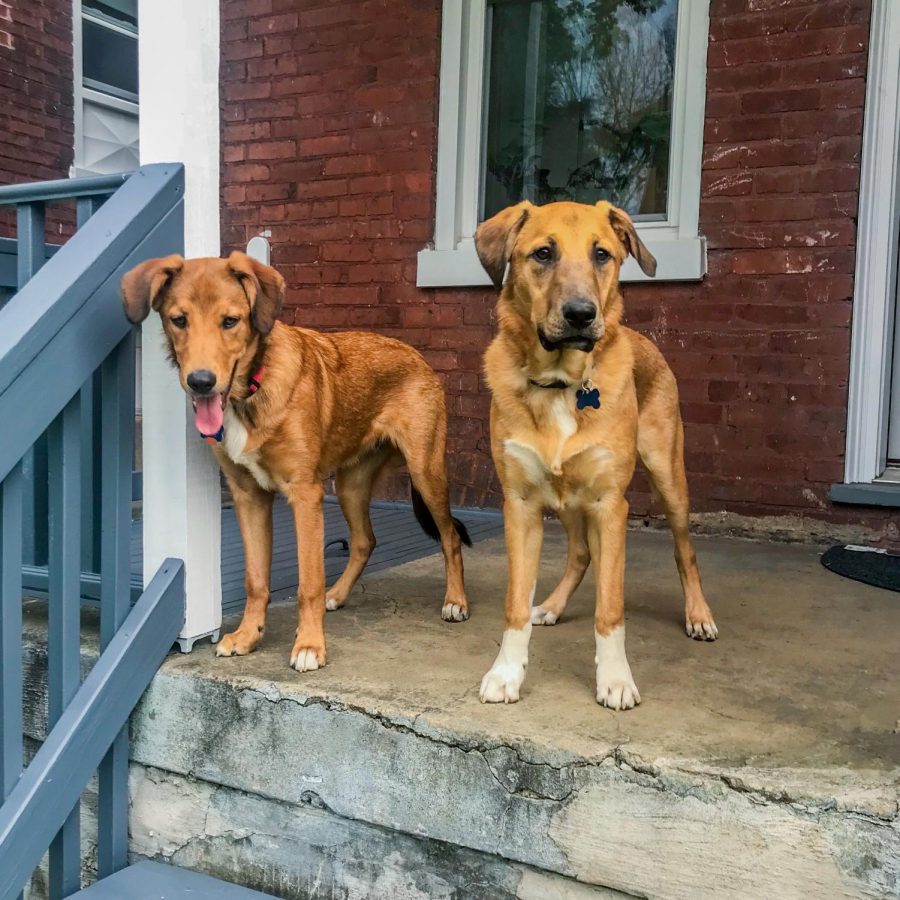Residents of Monroe Street have some new four-legged neighbors. On Oct. 11, the Dog House, a Living Learning Community, welcomed two furry friends, Kramer and Wiss Fiss.
The mixed-breed dogs, who are brothers, are the first dogs adopted from a shelter to be a part of the program. The Dog House works with the nonprofit Canine Partners for Life (CPL) through a program that has volunteers train service dogs.
Besides going through routine service dog training, the Dog House’s role is primarily to get the dogs socialized and introduced to public spaces.
“We just want to make them accustomed to as many different environments as possible,” Dog House resident Mia Farmer ‘23 said.
Over the course of the next few months, the owners of the Dog House will train Kramer and Wiss Fiss according to service dog guidelines from the CPL. They will learn cues to push their nose against buttons and retrieve objects.
“It’s different in the sense that it’s not just training them to fit our lifestyle, we’re training them to a specific standard,” Julia Banks ‘23, one of the heads of the Dog House, said.
Though they have only had Kramer and Wiss Fiss since the beginning of the month, the members of the house already have unique relationships with each dog.
“Even though they’re brothers and they have similar mannerisms and tendencies, their personalities are so different,” Farmer said.
Kramer, the more rambunctious dog of the two, is not afraid to get his energy out around the house. However, he is also a “cuddle bug” in his downtime, according to Farmer.
Though the brothers love to play, Wiss Fiss is the more mild-tempered sibling. He enjoys napping for long periods of time and hanging out with all the house members at once.
Caroline Schaeffer ‘23, the other head of the Dog House, said that she felt an immediate bond with Wiss Fiss.
“I feel like we just have a connection,” she said.
Though training a dog amidst classes and other responsibilities can be a heavy undertaking, the residents of the Dog House believe it to all be worth it.
“The work is so meaningful,” Farmer said. “When it’s frustrating, it’s not hard to remember that they’re going to literally save someone. They’re going to be doing such important things.”
“They’re definitely both smart dogs. I think they’re both going to pass their puppy tests and be good service dogs,” Farmer continued.
According to Schaeffer, training the dogs on a college campus is actually beneficial for educating the community on how to interact with service animals. “Introducing service dogs to a community that might not understand proper etiquette with service dogs is just really unique,” she said.
Banks and Schaeffer also noted that it is important to keep a distance from the dogs on campus when they are wearing their training vest. When their vest is off, people are then able to ask to interact with them.
“We’re just working really hard to make them focus on us, the trainer,” Schaeffer said.
Those interested in joining the Dog House next year can find updates on their Instagram, @lafdoghouse.























































































































